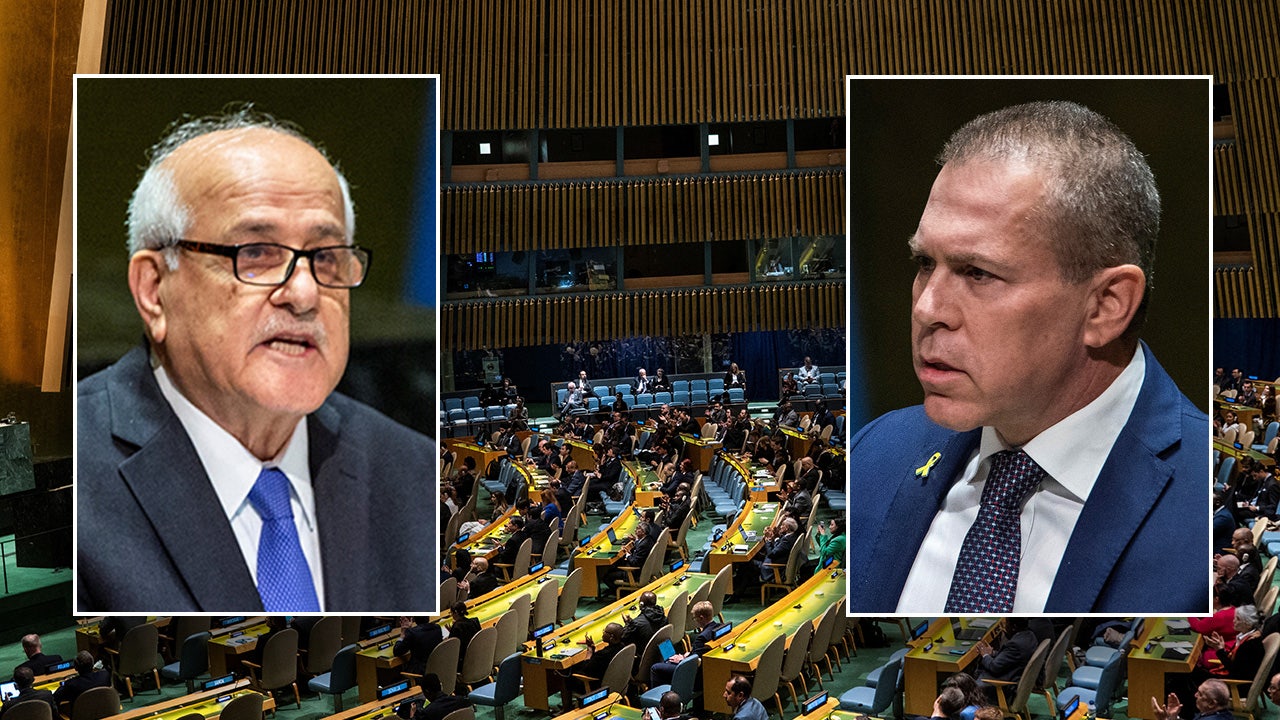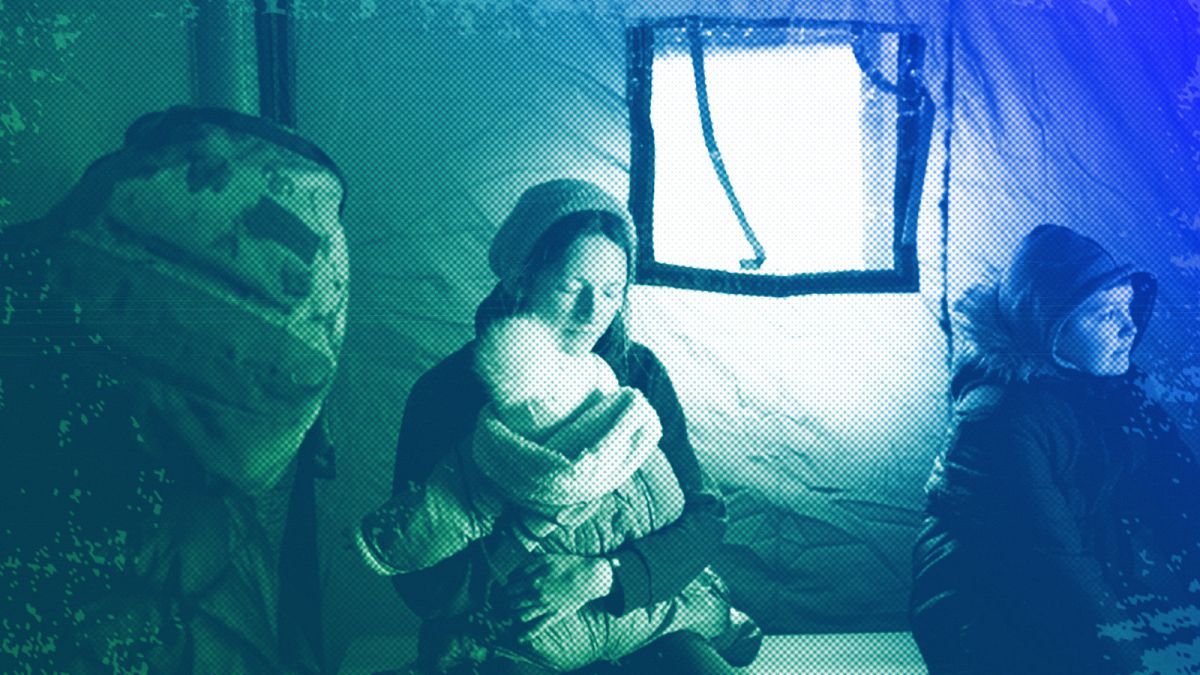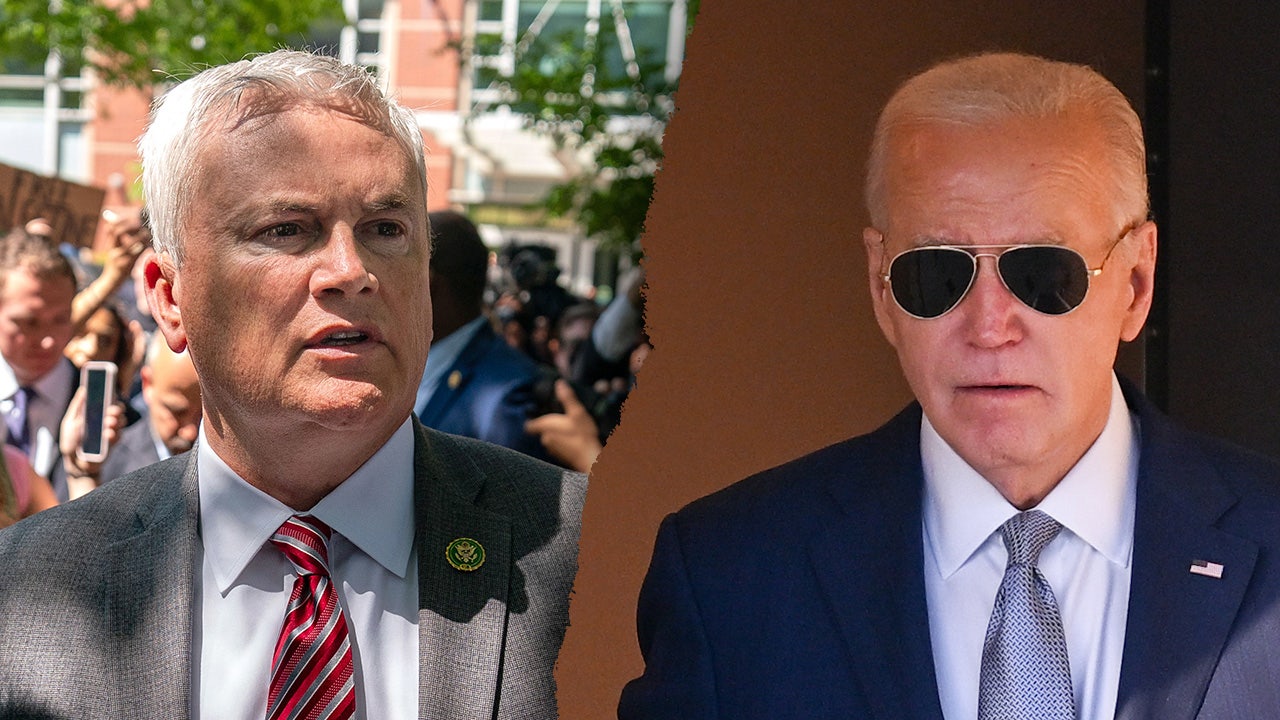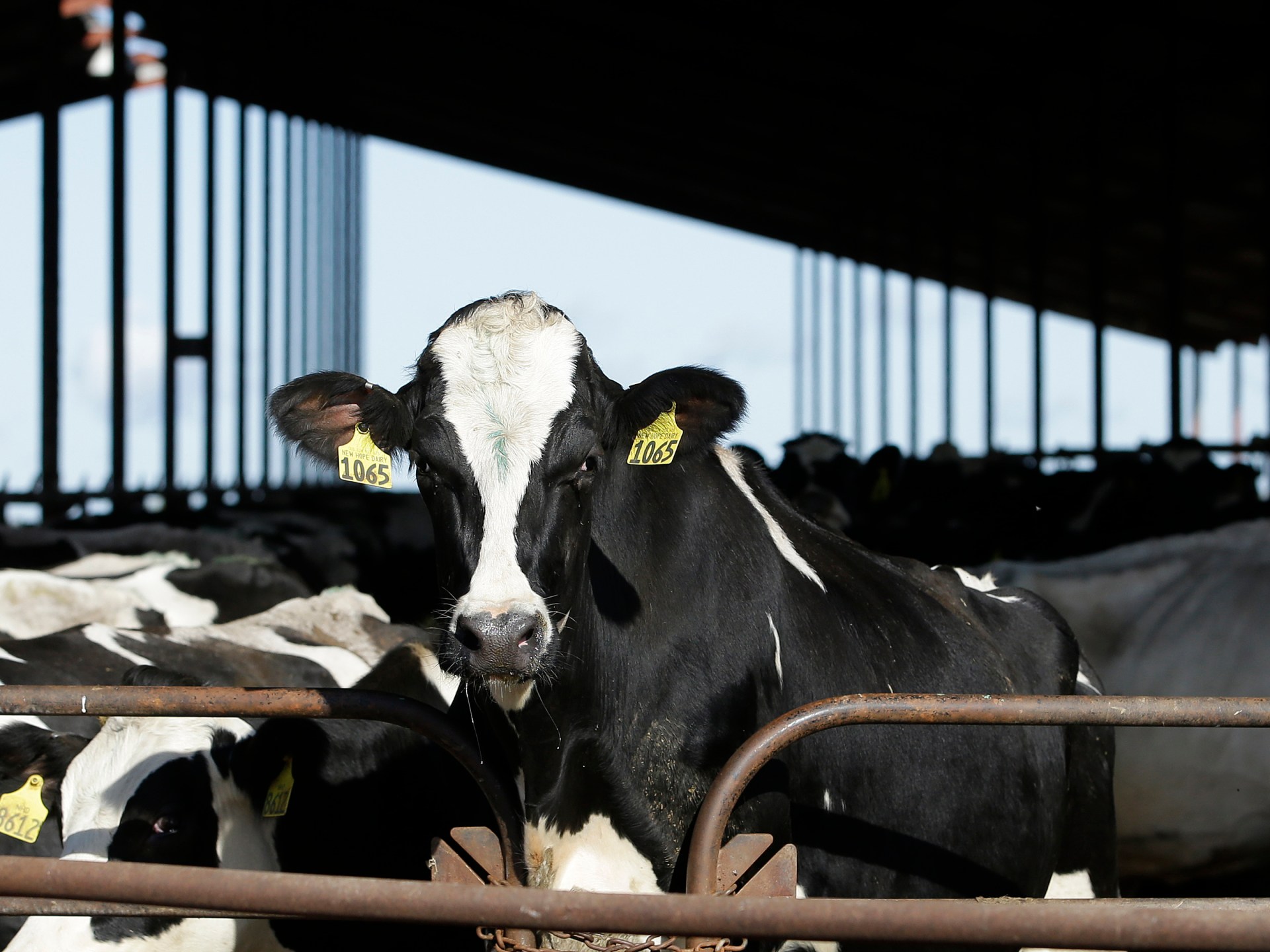World
As Protesters Die, a Nation’s Security Forces Face Little Scrutiny

In the adobe house she built with her husband in a small village in Peru, Antonia Huillca pulled out a stack of documents that once represented a glimmer of hope.
They were part of an investigation into the death of her husband, Quintino Cereceda, who left one morning in 2016 to join a protest against a new copper mine and never returned.
Ms. Huillca can’t read, but she can identify key documents: a photo of her husband’s body, a bullet wound to his forehead; the question-and-answer format in which police officers describe firing live ammunition as protesters threw rocks; the logo of the mining company sending convoys of trucks over unpaved roads, sparking protests among villagers fed up with the dust.
But today, the investigation has gone cold.
“All these years and no justice,” Ms. Huillca, a 51-year-old Quechua farmer, said as a storm gathered over her village, Choquecca, in Peru’s southern Andes. “It’s as if we don’t exist.”
For years, scores of similar cases in Peru have met a familiar fate: Investigations into the killing of unarmed civilians at protests where security forces were deployed, most of them in poor Indigenous and rural areas, are opened when they attract headlines, only to be closed quietly later, with officials often citing a lack of evidence.
Now, the unusually high death toll during antigovernment demonstrations after the removal of the country’s president last year has put accusations of abuse by security officials in the global spotlight, raising questions about why so many previous killings remain unsolved.
At least 49 civilians were killed in clashes with the police or military during protests after President Pedro Castillo was impeached last December when he tried to dissolve Congress and rule by decree, according to figures from the country’s ombudsman’s office.
A New York Times investigation in March found that in three towns where deadly clashes occurred, the police and soldiers had fired shotguns at civilians using lethal ammunition, shot assault rifles at fleeing protesters and killed unarmed people, often in apparent violation of their own protocols.
“We went through the same thing,” said José Cárdenas, whose younger brother, Alberto, was killed in 2015 in clashes with the police during protests that also targeted a copper mine. “My brother didn’t die in an accident. He was shot.”
So far, an investigation has not led to any charges.
A lack of accountability for excessive use of force by security agencies is a serious human rights failure, according to civil rights organizations, undermining people’s faith in the authorities.
In Peru, more than 200 civilians have been killed in police and military crackdowns on protests in the past two decades, according to a list compiled by the National Human Rights Coordinator, an advocacy group.
Yet, over that same period, prosecutors have not won a single conviction against police or military officers or their superiors for killings at protests, according to human rights activists, lawyers and two state prosecutors who insisted on anonymity because they were not authorized to speak to the news media.
In most cases, investigations do not even lead to a trial, they said, adding that, instead, demonstrators and protest leaders are accused of vandalism or inciting public disorder.
“It’s backwards — when it’s about punishing campesinos they move fast,” said David Velazco, a human rights lawyer who has defended more than 200 rural protesters on various charges, including vandalism and disturbing the public order.
The prime minister’s office and the national prosecutor’s office did not respond to multiple requests for comment, while the Interior Ministry declined to answer questions.
The country’s current president, Dina Boluarte, who took over after Mr. Castillo was ousted, has blamed the deadly clashes on protesters who have blocked roads and attacked security forces with rocks and slingshots.
Investigations involving clashes in rural areas can be challenging, legal analysts say, partly because it can be hard to determine whether the police face a legitimate threat to their lives when they are outnumbered by protesters, said Rolando Luque, who monitors conflicts in the ombudsman’s office.
“At some point, while carrying out their duties, they could be” overtaken by protesters,” he said, and “they could be killed with their own weapons.”
That is what happened during a clash in the Amazon between protesters and the police in 2009 that left 23 officers and 10 civilians dead, said Mr. Luque, who witnessed the aftermath. The officers, he said, “were taken into the forest and executed.”
Further complicating matters, the police and the military often refuse to share details about their operations, according to lawyers involved in cases of civilian deaths. And cases tend to be assigned to overworked prosecutors, some of whom manage more than 200 at a time.
Prosecutors have been reluctant to investigate top government officials who may have authorized or encouraged the use of lethal force, or the role of mining companies that hire the police to provide private security, human rights activists said.
“There’s a clear lack of institutional will to tackle the issue,” said Carlos Rivera, a human rights lawyer.
Peru is not the only South American democracy where unarmed civilians have been killed in protests as popular discontent has boiled over into the street.
Javier Puente, a scholar of Andean studies at Smith College in Massachusetts, said militaries and the police have long helped weak Latin American leaders make up for the lack of strong parties and other institutions, normalizing violent solutions to political problems.
“The price that Peru pays for the form of institutionalism that the military and the police offers is impunity,” Mr. Puente said.
Peru’s return to democracy in 2000 after years of authoritarian rule raised expectations of broader access to justice and political representation, along with an end to the police and military abuses of Peruvians, notably against Indigenous people.
Instead, as Peru experienced a rapid economic expansion, those hopes were left by the wayside.
One democratically elected president after another became mired in corruption scandals. Inequality remained high, social conflicts festered and a global commodities boom brought huge mining projects to rural Indigenous regions.
“They never listen to us. They just send in the police,” said Melchor Yauri, a member of an Indigenous community in southern Peru.
He said his father, Félix, was shot in the eye with a rubber bullet by the police during a protest in 2012 over pollution from a copper mine and died from an infection to his wounds. An investigation into his death was closed in 2015.
Peru’s police could be given greater immunity under a proposed congressional bill that would shift trials involving officers from civilian courts to a military-police court.
While neighboring countries, including Chile and Colombia, have elected leaders who promised changes to address excessive force, abuse and impunity in Peru seem to be growing more entrenched, said Will Freeman, a fellow in Latin America studies at the Council on Foreign Relations, a U.S. research institute.
Ms. Boluarte and most lawmakers “don’t even seem interested in pretending to put pressure behind accountability or reforms,” Mr. Freeman said.
Days after nine civilians were killed in clashes with security forces in December, Ms. Boluarte promoted her defense minister to prime minister. Her administration has described the police’s handling of protests as “impeccable” and proposed longer prison sentences for people who damage property or disrupt public order.
The relatives of victims of recent clashes say they do not trust the head of the prosecutor’s office, Patricia Benavides, after she removed prosecutors who specialize in human rights violations from investigations and moved cases from rural areas to Lima, the capital, making it harder for family members to monitor their progress.
After her husband’s death at the mining protest, Ms. Huillca said her herd of sheep dwindled to 30 from 500, as she has sold them off to support her children’s education.
To this day, she freezes up when she sees the police. “I’m afraid they’ll do the same thing to me,” she said.

World
US promises to squash Palestinian membership push at UN following vote

The U.S. has promised to vote against any resolution that would seek to grant the Palestinians full membership in the United Nations after a General Assembly resolution passed with significant support from member states.
“Our vote does not reflect opposition to Palestinian statehood,” U.S. Deputy Ambassador to the U.N. Robert Wood said after the vote. “We have been very clear that we support it and seek to advance it meaningfully: Instead, it is an acknowledgment that statehood will only come from a process that involves direct negotiations between the parties.”
“This resolution does not resolve the concerns about the Palestinian membership application raised in April in the Security Council through the admissions committee process,” Wood added. “Should the Security Council take up the Palestinian membership application as a result of this resolution, there will be a similar outcome.”
The vote, brought to the floor by the United Arab Emirates, received support from 143 members, with nine voting against and 25 abstaining.
BIDEN’S HOLD ON ISRAEL WEAPONS SHIPMENT STUNS RETIRED US GENERAL: ‘THIS IS A TURNING POINT’
The “no” votes included Argentina, Hungary, Israel and the United States, among others, while the abstentions included Albania, Austria, Bulgaria, Canada, Croatia, Finland, Germany, Italy, Lithuania, Monaco, the Netherlands, Sweden, Switzerland, Ukraine and the United Kingdom, among others.
A screen shows the voting results during the United Nations General Assembly vote on a draft resolution that would recognize the Palestinians as qualified to become a full U.N. member, in New York City, May 10, 2024. (Reuters/Eduardo Munoz)
“A negotiated two-state solution remains the best path towards an enduring peace where Israelis and Palestinians can live side by side with equal measures of security, freedom, and dignity,” the U.S. Mission to the U.N. wrote on social media platform X after the vote. “Unilateral measures like the UNGA resolution on Palestinian UN membership adopted today will not advance this goal.”
ISRAEL BOMBS RAFAH, PREPARES FOR GROUND INVASION AFTER CEASEFIRE TALKS WITH HAMAS FALL APART
Wood in his address to the General Assembly stressed that the resolution “does not alter the status” of the Palestinians at the United Nations, labeling the motion “unproductive,” but assured that as the resolution did not ultimately grant the Palestinians the rights that would provide “the same standing as a member state.”

Israel’s Ambassador to the United Nations Gilad Erdan shreds a piece of paper with the title of the United Nations Charter as he addresses delegates during the United Nations General Assembly before voting on a draft resolution that would recognize the Palestinians as qualified to become a full U.N. member, in New York City, May 10, 2024. (Reuters/Eduardo Munoz)
As such, the U.S. has indicated it will therefore not cut funding to the United Nations or specialized agencies, which it would have had to do under Public Law 101-246. President Obama during his administration cut funding to UNICEF after the organization admitted the Palestinians as members.
ISRAELI ENVOY SLAMS DISCLOSURE OF US HOLD ON ARMS FOR ISRAEL, CALLING MOVE ‘THE WRONG MESSAGE’
Prior to the vote, Israel’s Ambassador the U.N. Gilad Erdan accused members who would support the motion of “shredding the U.N. charter.”
“Shame on you,” Erdan said as he shredded a small paper with “Charter of the United Nations” written on it in a handheld paper shredder.
Anne Bayefsky, director of the Touro University Institute on Human Rights and the Holocaust and president of Human Rights Voices, told Fox News Digital that “Roughly 75% of U.N. member states evidently believe that there is one exception to the U.N. Charter’s membership core requirement of being a “peace-loving state,” namely, the would-be Palestinian terror state.
She warned that “With today’s resolution, the U.N. General Assembly could soon have a President from the so-called “State of Palestine” – without any negotiation or agreement to live in peace and security with a Jewish state. Hamas and its Palestinian Authority UN mouthpiece at the helm of the United Nations’ lead body. A day in infamy.”

Palestinian Ambassador to the United Nations Riyad Mansour addresses delegates during the United Nations General Assembly before voting on a draft resolution that would recognize the Palestinians as qualified to become a full U.N. member, in New York City, May 10, 2024. (Reuters/Eduardo Munoz)
Several members in their post-vote statements stressed that they condemned the Hamas terrorist attack on October 7, but argued that they deemed Israel’s actions in Gaza of having gone too far: Singapore argued that supporting the motion would hopefully push Israel and the Palestinians to resume discussions aimed at establishing a two-state solution.
France’s mission stressed that it supported the admission of the Palestinians as members of the U.N., but that while it voted in favor of the resolution to indicate ultimate support for the motion, it did not support attempts to “circumvent” the membership admission process.
World
The European public remains unwaveringly committed to Ukraine

The opinions expressed in this article are those of the author and do not represent in any way the editorial position of Euronews.
European leaders cannot afford to feel complacent. Quite the opposite: they must act decisively and renew their commitments of support so Ukraine can effectively push back and win, Viktor Mak writes.
In the two years since Russia launched its unprovoked and illegal invasion of Ukraine, the vigorous international support that erupted in response has begun to wane.
The recent spectacle of horse-trading at the US Congress on a new $61-billion funding package, together with emerging divergences of opinion in Europe, indicates that competing priorities are leading to a slow dilution of commitments.
While Russia may have intended to win with a shock and awe approach, it seems it may be having more success with the long play of attrition and waiting for splits to emerge in the Western alliance.
And while governments in Europe and the US increasingly deliberate over aid, the need for help, if anything, is greater now than at the start of the war as its impacts bury deep into Ukrainian society.
Millions in need of concrete help
Alongside the extensive military requirements, there are the fundamental needs of a society thrust into near-catastrophic disruption by its imperialistic neighbour.
There are around 3.7 million internally displaced people struggling to make ends meet. Many are forced to fill the shortfall left by temporary and poorly paid work with humanitarian aid and social security payments.
A quarter of Ukraine’s population is elderly, many dependent on thinning state pensions, even in a country where intergenerational family support is the norm. Hard hit also are those military and civilian individuals injured by the conflict.
There are 300,000 more disabled people in Ukraine now than there were at the start of the war.
Where governments’ support is uncertain, individuals and civil society remain steadfast and continue to make a difference.
Since the outbreak of the war, the principal vehicle for getting aid to those in need has been the UNITED24 initiative, launched by Volodymyr Zelenskyy on 5 May 2022.
To date, this platform has collected over €424 million in individual donations. It has helped finance the provision of 48,000 pieces of body armour and 65,000 uniforms for Ukrainian army officials, the acquisition of 30 drones for direct military activity, and the purchase of 35 ALV machines and 10 X-ray machines for medical staff sited on Ukraine’s eastern front.
Others in Europe are chipping in, too
Smaller organisations in Europe have also intervened with great effect. One example is Vitsche, a Berlin-based NGO founded by displaced Ukrainians to counter Russian disinformation efforts and stimulate grassroots support for those fighting on the frontlines.
In its latest grassroots campaign, Vitsche amassed €30,000 in just three days for the purchase and delivery of an emergency medical unit for hospitals in the Kharkiv region of Ukraine.
This campaign, which was amplified by prominent German social media influencers, will help frontline medical staff evacuate soldiers and civilians quickly and provide a space for potentially life-saving treatment at the frontlines.
It also follows on from a series of other successful initiatives to get key provisions into Ukraine in the absence of government-level support.
In the UK, the transport operator Go-Ahead, together with Swindon Humanitarian Aid Partnership, crowd-sourced the purchase of four buses for frontline use across eastern Ukraine. These are now providing Ukrainian service personnel with rest areas and mobile field hospitals.
Another has been redecorated to feature an enchanted forest and transformed into a children’s Story Bus to provide young people with much-needed respite.
In Poland, the NGO Project HOPE is delivering primary health care, rehabilitation and psychological support to Ukrainian refugees, including providing mental health assistance to nearly 4,000 children.
Even in Hungary, a country aligned more with the Kremlin than Kyiv, there have been remarkable, if underreported, acts of civic aid.
The ecological NGO “10 million trees” drew on its community of supporters to defy blanket state media criticism of Ukraine and successfully finance the purchase and delivery of vital provisions to those on the frontline as part of a “Christmas in Kyiv” campaign. Donations included warm clothes and generators to power critical infrastructure during the winter.
The promises we keep
From the outset, European citizens have shown unwavering commitment to Ukraine’s fight for self-determination — providing support and aid that is filling the gaps left by political intransigence and in-fighting.
European leaders cannot afford to feel complacent with the recently approved US aid package for Kyiv. Quite the opposite, they must act decisively and renew their commitments of support so Ukraine can effectively push back and win.
As the leading historian of the region Timothy Snyder has stated, time and again, it is imperative that we uphold our promises of support to Ukraine, both for the defence of their international rights as a free and sovereign country and in order to keep the peace here in Europe.
Viktor Mak is co-director of the European Centre for Digital Action (ECDA).
At Euronews, we believe all views matter. Contact us at view@euronews.com to send pitches or submissions and be part of the conversation.
World
Ukraine peace summit pushes neutral Swiss toward Western embrace

-

 Politics1 week ago
Politics1 week agoThe White House has a new curator. Donna Hayashi Smith is the first Asian American to hold the post
-

 Politics1 week ago
Politics1 week agoAdams, NYPD cite 'global' effort to 'radicalize young people' after 300 arrested at Columbia, CUNY
-

 World1 week ago
World1 week agoTurkish police arrest hundreds at Istanbul May Day protests
-

 News1 week ago
News1 week agoPolice enter UCLA anti-war encampment; Arizona repeals Civil War-era abortion ban
-

 News1 week ago
News1 week agoVideo: Police Arrest Columbia Protesters Occupying Hamilton Hall
-

 News1 week ago
News1 week agoSome Republicans expected to join Arizona Democrats to pass repeal of 1864 abortion ban
-
)
) Movie Reviews1 week ago
Movie Reviews1 week agoThe Idea of You Movie Review: Anne Hathaway’s honest performance makes the film stand out in a not so formulaic rom-com
-

 Politics1 week ago
Politics1 week agoNewsom, state officials silent on anti-Israel protests at UCLA



/cdn.vox-cdn.com/uploads/chorus_asset/file/25442357/ss_2372e86c24b5ae5486c67190213e0222684fab77.jpg)








